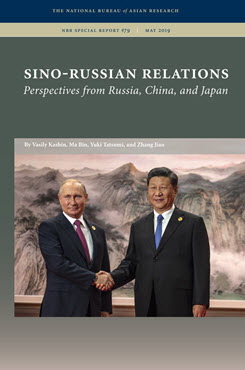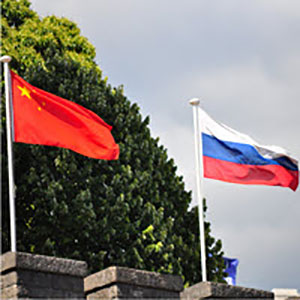China-Russia Security Cooperation
Implications for Japan
This essay examines how closer China-Russia relations affect Japan’s strategic calculations and analyzes why Japan seems to continue to underappreciate the significance of recent developments in the partnership.
EXECUTIVE SUMMARY
MAIN ARGUMENT
China and Russia present very different types of security and diplomatic challenges for Japan. Yet despite the potentially negative impact of robust bilateral relations on Japanese national interests, Japan seems to be out of step with the U.S. and its Western partners in the assessment of what the current status of China-Russia relations means. Although there is a growing wariness about the expansion and deepening of relations and increasing concern that Sino-Russian cooperation may aim to undermine the interests of the U.S. and its allies, Japan continues to regard this partnership as a “marriage of convenience.” If Japan is not able to move away from this conventional assumption, it may face serious challenges to its approach not only to China and Russia but also to the U.S. and its Western partners, which are increasingly critical and alarmist about the partnership between Beijing and Moscow.
POLICY IMPLICATIONS
- If Japan continues to underappreciate the significance of the latest China-Russia rapprochement, it could struggle to adapt its policies to a security environment in Northeast Asia that is increasingly hostile to Japan.
- If Japan continues to feel anxious about the U.S. alliance commitment not only in Northeast Asia but also in the broader Indo-Pacific region, it will likely continue to hedge against the risk of abandonment by the U.S. by engaging China and Russia based on a bifurcated approach.
- If the U.S. wants to maintain solidarity with Japan in countering stronger China-Russia relations, it must engage Japan in a strategic dialogue that would allow the U.S. to explore Japan’s view of the partnership, its assumptions, and what drives these assumptions.
Yuki Tatsumi is Director of the Japan Program and Co-director of the East Asia Program at the Stimson Center in Washington, D.C.



